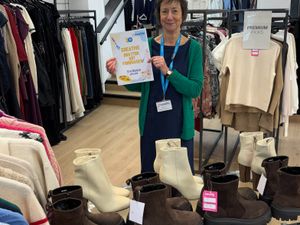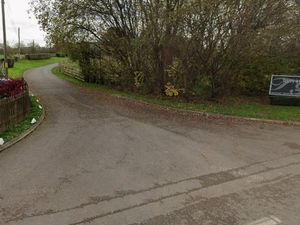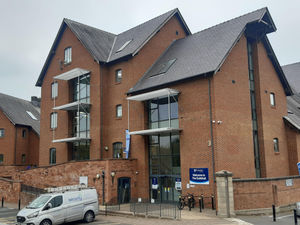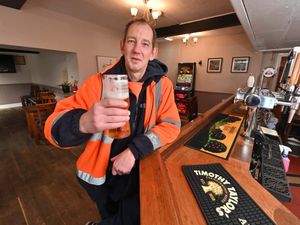Exhausted and frustrated: MP shares her 12-hour shift on ambulance frontline
North Shropshire MP Helen Morgan tells of her shift with paramedics in her own words.
It’s midday on a wet and windy afternoon. Normally I’d be in a village hall with constituents. Instead I’m hurtling down a North Shropshire A-road being deafened by a siren in the back of an ambulance.
I’m with paramedics Steve and Julie and we’re responding to the first call of our 12-hour shift. It’s only minutes since we clocked on but the elderly lady in need of help has been waiting for three hours despite the target response time of 18 minutes for her category of call.
All of our response times are around 10 times longer than the target and today is a ‘good’ day for Shropshire.
Thankfully, delayed as it is, the help is of the highest possible standard. Calm, kind and technically excellent, Steve and Julie are masters of putting their patients at ease while administering the care they need.
Our first call dealt with, the blue lights are straight back on and we’re on our way to a boy with a dislocated knee. He’s spent three hours in excruciating pain with his patella out of place. Morphine is needed but because he’s been waiting in the cold for so long it’s impossible to find a vein, and gas and air has to do before he’s taken to hospital. Another patient forced to suffer because of system-wide delays.
The failing system is clear to everyone at A&E. Eight ambulances are queueing outside and staff are working at pace to help everyone possible.
Watching them work, it strikes me how a paramedic’s job is no longer just about being a medic. They are also porters, cleaners and carers. Seeing how they remain calm while juggling so many jobs is highly impressive.
Medic after medic tells me that the solution starts with social care. While hospital beds continue to be blocked, ambulances will continue to queue and patients like our poor young dislocation sufferer will continue to wait.
Others will make their own way to hospital, like the young crash victim who arrives next to us at A&E with a broken leg not prepared to wait for an ambulance.
Just two years ago a three-hour delay for an ambulance would have been a national scandal but now it is the norm.
It’s not fair on patients and it’s not fair on paramedics.
Six hours in and it’s time for a break but a category one call comes in just after the Deliveroo order has been placed (the driver is understanding and reroutes to hospital). We’re 20 minutes away but are still the closest crew so the siren is switched on and the foot is put down. Thankfully our patient survives. But this isn’t always the case. There are patients dying waiting for ambulances to arrive.
Food wolfed down and we’re back on the road heading to a disabled patient who has been waiting 12 hours. He appears to have a blockage in his bowel and is clearly in pain. By the time he’s been dropped off at hospital it’s midnight and time for us to clock off.
The crew still need to clear out the ambulance and sort out their admin but for me it’s time to reflect, exhausted, on 12 hours on the front line. My admiration for the medics I’ve met is matched only by my frustration at the situation they’re in.
These dedicated professionals deserve better. Despite more than a year of warnings we are still waiting for ministers to take the situation seriously.
The solution starts with sorting out social care and continues with staffing hospitals properly. Until this happens the long, painful waits will continue.




